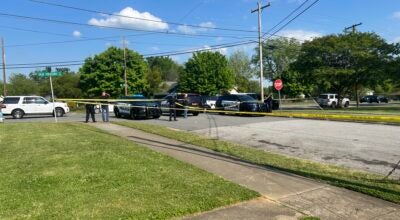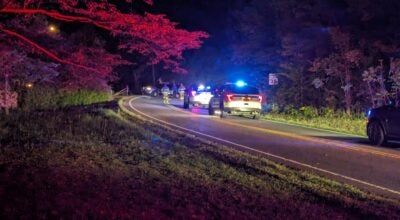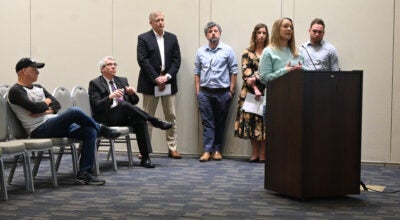City Council’s reconciliation resolution to be delayed following revision
Published 12:00 am Friday, January 11, 2019
SALISBURY — Actions in Faith and Justice delivered a new “Resolution of Reconciliation” to Salisbury City Council members last month in hopes it will be discussed at the council’s meeting on Tuesday.
But the resolution will not be on the agenda after a majority of council members asked for more time to review it, according to City Clerk Diane Gilmore.
The resolution was brought to the City Council in August by Mayor Al Heggins, causing back-and-forth discussion, some of which grew tense, about the language used and the process by which it was brought to the council. After two meetings of debate and divided support, the council agreed to let Actions in Faith and Justice draft a new resolution.
Actions in Faith and Justice has worked for four months, researching and asking historians to add their input to the completed resolution. Actions in Faith and Justice told the Salisbury Post it delivered the resolution to the city of Salisbury on Dec. 27.
The Rev. Olen Bruner, co-chairman of the committee, said Tuesday (Jan. 15) is meaningful because it’s the birthday of civil rights icon Martin Luther King Jr. And Bruner said he is disappointed the resolution won’t be brought up.
“Why wasn’t this allowed on Martin Luther King’s real birthday?” Bruner asked, adding that King would have a grin on his face in his grave if the resolution were discussed Tuesday.
Bruner said the Resolution of Reconciliation is a way to look forward, not back.
“We’re not trying to set the city on fire,” he said. “This is about the present, not the past.”
A portion of the resolution says, “This pledge is in service to the citizens of Salisbury being defined by our newly established and ongoing actions, rather than solely by our past.” To see the full text, click here.
The resolution also renounces the Aug 6, 1906 lynching of Jack Dillingham, Nease Gillespie and John Gillespie as well as the July 13 murders of Isaac Lyerly, Augusta Barringer Lyerly, John H. Lyerly and Alice Lyerly. It also renounces all acts of violence against African-Americans from which they were not protected during the Jim Crow era and all present-day manifestations of injustice.
The resolution creates an “Equity Commission,” which would be charged with “the task of identifying, researching, and reporting policies and practices that obstruct equity or evidence disparity.” The commission would also oversee processes that eliminate inequities.
The commission would include eight people appointed by the Salisbury City Council, four people who serve on the city’s Human Relations Council and four appointed by the Human Relations Council. The terms of members would be three years. There would be no compensation for the positions.
Heggins said she’s concerned that not having the resolution on Tuesday’s agenda sends a message that city officials don’t trust Actions in Faith and Justice. In her December state of the city address, Heggins said the resolution would be brought back for review in January, but Tuesday will be the City Council’s last regularly scheduled meeting of the month.
Actions in Faith and Justice received support for the resolution from regional experts including Claude Clegg at the University of North Carolina at Chapel Hill, who wrote “Troubled Ground: A Tale of Murder, Lynching and Reckoning in the New South.”
Bruner said he has talked to members of community organizations to introduce them to the resolution and to invite them to Tuesday’s City Council meeting to speak during the public-comment period. He said the mayor was not involved in writing the resolution.





